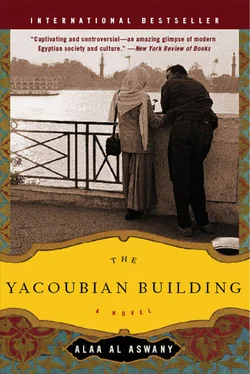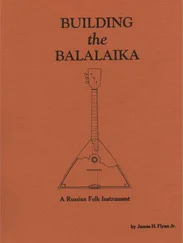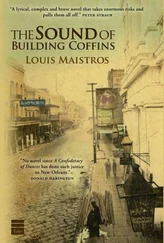Alaa Al Aswany - The Yacoubian Building
Здесь есть возможность читать онлайн «Alaa Al Aswany - The Yacoubian Building» весь текст электронной книги совершенно бесплатно (целиком полную версию без сокращений). В некоторых случаях можно слушать аудио, скачать через торрент в формате fb2 и присутствует краткое содержание. Год выпуска: 2006, ISBN: 2006, Издательство: Adobe Acrobat eBook Reader, Жанр: Современная проза, на английском языке. Описание произведения, (предисловие) а так же отзывы посетителей доступны на портале библиотеки ЛибКат.
- Название:The Yacoubian Building
- Автор:
- Издательство:Adobe Acrobat eBook Reader
- Жанр:
- Год:2006
- ISBN:978-0-06-087813-9
- Рейтинг книги:5 / 5. Голосов: 1
-
Избранное:Добавить в избранное
- Отзывы:
-
Ваша оценка:
- 100
- 1
- 2
- 3
- 4
- 5
The Yacoubian Building: краткое содержание, описание и аннотация
Предлагаем к чтению аннотацию, описание, краткое содержание или предисловие (зависит от того, что написал сам автор книги «The Yacoubian Building»). Если вы не нашли необходимую информацию о книге — напишите в комментариях, мы постараемся отыскать её.
The Yacoubian Building — читать онлайн бесплатно полную книгу (весь текст) целиком
Ниже представлен текст книги, разбитый по страницам. Система сохранения места последней прочитанной страницы, позволяет с удобством читать онлайн бесплатно книгу «The Yacoubian Building», без необходимости каждый раз заново искать на чём Вы остановились. Поставьте закладку, и сможете в любой момент перейти на страницу, на которой закончили чтение.
Интервал:
Закладка:
Some attribute his love of silence to his application (with his strictly observant piety) of the noble hadith that says, “If one of you speaks let him be brief, or let him stay silent” — though at the same time, with his vast wealth and extraordinary influence, he does not in fact need to talk much because his word is generally final and has to be obeyed. To this should be added his wide experience of life that enables him to grasp things at a glance, for the aging millionaire, who is past sixty, started out thirty years ago as a mere migrant worker who left Sohag governorate for Cairo looking for work, and the older people on Suleiman Basha remember him sitting on the ground in the passage behind the A l’Americaine in a gallabiya, vest, and turban with a small wooden box in front of him — for that is where he started, shining shoes. He worked for a time as an office servant in the Babik office supplies store, then disappeared for more than twenty years, suddenly to reappear having made a lot of money. Hagg Azzam says that he was working in the Gulf, but the people in the street do not believe that and whisper that he was sentenced and imprisoned for dealing in drugs, which some insist he continues to do to this day, citing as evidence his exorbitant wealth, which is out of all proportion to the volume of the sales in his stores and the profits of his companies, indicating that his commercial activities are a mere front for money laundering.
Whatever the accuracy of these rumors, Hagg Azzam has become the unrivaled Big Man of Suleiman Basha and people seek him out to get their business done and settle their differences, while his influence has been consolidated recently by his joining the Patriotic Party and by his youngest son Hamdi subsequently joining the judiciary as a public prosecutor. Hagg Azzam has an overwhelming urge to buy property and shops in the downtown district specifically, as though to stress his new situation in the area that once witnessed him as a poor down-and-out.
It was about two years ago that Hagg Azzam woke to perform the dawn prayer, as was his custom, and found his nightwear wet. He was disturbed and it occurred to him that he might be sick, but when he went into the bathroom to wash, he ascertained that the cause of the wetness was a sexual urge and he remembered the distorted image of a naked, distant woman that he had seen in his dreams. This strange phenomenon in an old man like himself astonished him. He forgot about it during the busy day but it happened again several times thereafter, so that he had to bathe daily before the dawn prayer to cleanse himself of the defilement. Nor did things end there, for he caught himself several times stealing glances at the bodies of the women working for him in the store, and some of them, instinctively sensing his lust, started to walk with a deliberately provocative gait and talk coquettishly in front of him to seduce him, so that several times he was forced to scold them.
These sudden importunate sexual urges disturbed Hagg Azzam greatly, firstly because they were inappropriate to his age and secondly because he had kept to the straight and narrow all his life and believed that his uprightness and avoidance of anything that might make God angry was the main reason for all the success he had achieved — for he never drank alcohol. (As for the hashish that he smoked, many religious experts had assured him that it was merely “reprehensible” and neither created uncleanness nor was absolutely prohibited. In addition it neither took away the mental faculties nor drove man to commit indecencies or crimes as did alcohol; on the contrary, hashish calmed a man’s nerves, brought him greater equipoise, and sharpened his mind.) Likewise, the Hagg had never committed fornication in his entire life, immunizing himself, like most Sa’idis, by marrying early; also over the course of his long life he had witnessed wealthy men surrender to their lusts and lose vast fortunes.
The Hagg confided his problem to certain older friends of his and they assured him that what was happening was an ephemeral phenomenon that would soon disappear forever. “It’s just an excess of good health,” said his friend Hagg Kamil the cement trader, laughing. But the urges continued as the days passed and intensified until they became a heavy burden on his nerves and, even worse, were the cause of a number of tiffs with Hagga Salha, his wife, who was a few years younger than he but was caught unprepared by this sudden blossoming of youthfulness and then got upset because she was unable to satisfy him. More than once she rebuked him and told him that their children were grown men and that as two older spouses they ought to adorn themselves with an appropriate sedateness.
Nothing was left to Hagg Azzam but to take the matter to Sheikh El Samman, the celebrated man of religion and president of the Islamic Charitable Association, whom Azzam considers his spiritual leader and guide in all matters pertaining to this world and the next, to the degree that he will not reach a firm decision on any subject that concerns him in his work or his life without having recourse to him. He puts at his disposal thousands of pounds, to be spent, with his knowledge, on charitable works, not to mention the valuable gifts that he gives him every time a good business deal has gone through as a result of his prayers and blessings.
After the Friday prayer and the weekly class in religion that Sheikh El Samman delivers at the Salam Mosque in Medinet Nasr, Hagg Azzam requested a private interview with the sheikh and talked to him about his problem. The sheikh listened attentively, was silent for a while, then said with a vehemence that was not far from anger, “Glory be, Hagg! Why, my brother, make things difficult for yourself when God has made them easy for you? Why open the door for Satan, so that you can fall into error? You have to protect yourself, as God commanded. God has made marriage to more than one wife lawful for you so long as you behave with justice. Put your trust in God and make haste to do what is right before you fall into what is wrong!”
“I’m an old man. I’m afraid of what people might say if I married.”
“If I didn’t know your righteousness and God-fearingness, I would think badly of you. Which is worthier of your fear, man? What people say, or the anger of the Merciful, Glorious, and Magnificent? Would you make forbidden what God has made lawful? You are potent, your health is excellent, and you find in yourself a desire for women. Marry and treat both your wives equally. God loves you to make lawful use of what He has permitted.”
Hagg Azzam hesitated for a long while (or made a show of doing so), but Sheikh El Samman kept on at him until he convinced him. He even (and for this he was to be thanked) undertook to convince his three sons, Fawzi, Qadri, and Hamdi (the public prosecutor). The last two received the news of their father’s wish to get married with astonishment but accepted it anyway. Fawzi, the elder son and his father’s right hand at work, seemed not to approve, though he did not make his reason for objecting explicit. In the end, he said grudgingly, “If the Hagg has to marry, then it’s up to us to make sure he chooses well, so he doesn’t fall into the hands of some bitch who will make his life hell.”
The principle was established, then, and it remained to mount a search for a suitable wife. Hagg Azzam commissioned his most trusted friends to look for a nice girl and during the next few months saw many candidates but with his broad experience refused any in whose conduct he found anything to object to. This one was outstandingly lovely but had her face uncovered, was pert, and he could not entrust her with his honor; that one was young and spoiled and would exhaust him with her demands; and the one after was greedy and loved money. Thus, the Hagg refused all candidates until he met Souad Gaber, a salesclerk in the Hannaux department store in Alexandria. She was divorced and had one son, and as soon as the Hagg saw her she beguiled his heart — a light-skinned woman, full-bodied, beautiful, who covered her hair, which was black and smooth and flowing, the tresses peeking out from beneath her headscarf. The eyes were black, wide, and bewitching, the lips plump and sensual, and she was clean, and her attention to the minutiae of her body was outstanding as is usually the case with the women of Alexandria. Her finger- and toenails were clipped and the tips were cleaned, though they were not painted (so that the varnish would not form an impediment to the water she used for her ritual ablutions). Her hands were soft, tender-skinned, and rubbed with cream. Even her heels were extremely clean, smooth, firm, and free of any cracking, and were suffused with a delicate redness as a result of being polished with pumice.
Читать дальшеИнтервал:
Закладка:
Похожие книги на «The Yacoubian Building»
Представляем Вашему вниманию похожие книги на «The Yacoubian Building» списком для выбора. Мы отобрали схожую по названию и смыслу литературу в надежде предоставить читателям больше вариантов отыскать новые, интересные, ещё непрочитанные произведения.
Обсуждение, отзывы о книге «The Yacoubian Building» и просто собственные мнения читателей. Оставьте ваши комментарии, напишите, что Вы думаете о произведении, его смысле или главных героях. Укажите что конкретно понравилось, а что нет, и почему Вы так считаете.












